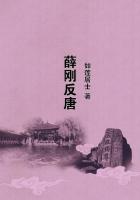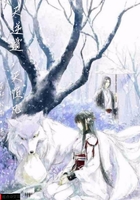On my way home to New York, after the vote of the New York senators had ended my hope for appointment, I had as a fellow traveller my friend, Professor Davies, from West Point. He was a brother of that eminent jurist, Henry E. Davies, a great lawyer and chief justice of our New York State Court of Appeals. Professor Davies said to me: " I think I must tell you why your nomination for collector was not sent to the Senate. I was in Washington to persuade the president, with whom I am quite intimate, to make another appointment. I was calling on Secretary Hugh McCulloch and his family in the evening of the day when the conference decided to appoint you. Secretary McCulloch said to me: 'The contest over the collectorship of the port of New York is settled, and Chauncey Depew's name will be sent to the Senate to-morrow morning.' I was at the White House," continued the professor, "the next morning before breakfast. The president received me at once because I said my mission was urgent and personal. I told him what the secretary of the treasury had told me and said:
'You are ****** a fatal mistake. You are going to break with your party and to have a party of your own. The collectorship of the port of New York is the key to your success. Depew is very capable and a partisan of his party. If you have any doubt, I beg of you to withhold the appointment until the question comes up in the Senate of sustaining or overriding of the veto of the Civil Rights Bill. The votes of the two New York senators will decide whether they are your friends or not.' The president thought that was reasonable, and you know the result."There was at least one satisfaction in the professor's amazingly frank revelation: it removed all doubt why I had lost a great office and, for my age and circumstances, a large fortune.
President Andrew Johnson differed radically from any President of the United States whom it has been my good fortune to know.
This refers to all from and including Mr. Lincoln to Mr. Harding.
A great deal must be forgiven and a great deal taken by way of explanation when we consider his early environment and opportunities.
In the interviews I had with him he impressed me as a man of vigorous mentality, of obstinate wilfulness, and overwhelming confidence in his own judgment and the courage of his convictions.
His weakness was alcoholism. He made a fearful exhibition of himself at the time of his inauguration and during the presidency, and especially during his famous trip "around the circle" he was in a bad way.
He was of humble origin and, in fact, very poor. It is said of him that he could neither read nor write until his wife taught him.
He made a great career both as a member of the House of Representatives and a senator, and was of unquestionable influence in each branch.
With reckless disregard for his life, he kept east Tennessee in the Union during the Civil War.
General Grant told me a story of his own experience with him.
Johnson, he said, had always been treated with such contempt and ignored socially by the members of the old families and slave aristocracy of the South that his resentment against them was vindictive, and so after the surrender at Appomattox he was constantly proclaiming "Treason is odious and must be punished."He also wanted and, in fact, insisted upon ignoring Grant's parole to the Confederate officers, in order that they might be tried for treason. On this question of maintaining his parole and his military honor General Grant was inflexible, and said he would appeal not only to Congress but to the country.
One day a delegation, consisting of the most eminent, politically, socially, and in family descent, of the Southern leaders, went to the White House. They said: "Mr. President, we have never recognized you, as you belong to an entirely different class from ourselves, but it is the rule of all countries and in all ages that supreme power vested in the individual raises him, no matter what his origin, to supreme leadership. You are now President of the United States, and by virtue of your office our leader, and we recognize you as such." Then followed attention from these people whom he admired and envied, as well as hated, of hospitality and deference, of which they were past masters.
It captivated him and changed his whole attitude towards them.
He sent for General Grant and said to him: "The war is over and there should be forgiveness and reconciliation. I propose to call upon all of the States recently in rebellion to send to Washington their United States senators and members of the House, the same as they did before the war. If the present Congress will not admit them, a Congress can be formed of these Southern senators and members of the House and of such Northern senators and representatives as will believe that I am right and acting under the Constitution. As President of the United States, I will recognize that Congress and communicate with them as such.
As general of the army I want your support." General Grant replied:
"That will create civil war, because the North will undoubtedly recognize the Congress as it now exists, and that Congress will assert itself in every way possible." "In that case," said the president, "I want the to support the constitutional Congress which I am recognizing." General Grant said: "On the contrary, so far as my authority goes, the army will support the Congress as it is now and disperse the other." President Johnson then ordered General Grant to Mexico on a mission, and as he had no power to send a general of the army out of the United States, Grant refused to go.
Shortly afterwards Grant received a very confidential communication from General Sherman, stating that he had been ordered to Washington to take command of the army, and wanted to know what it meant.
General Grant explained the situation, whereupon General Sherman announced to the president that he would take exactly the same position as General Grant had. The president then dropped the whole subject.














